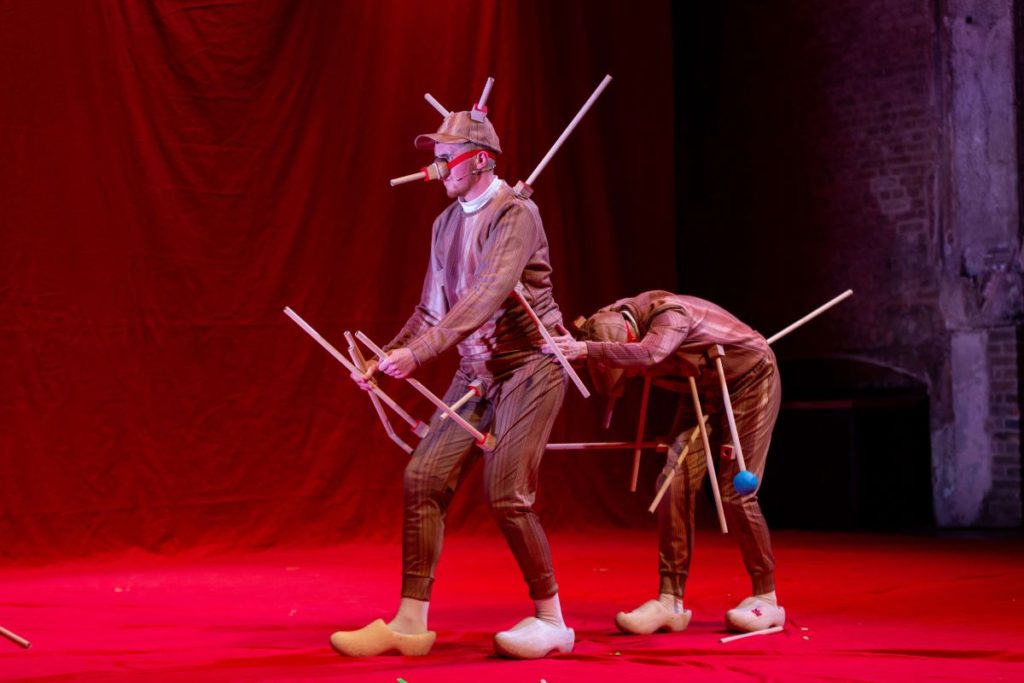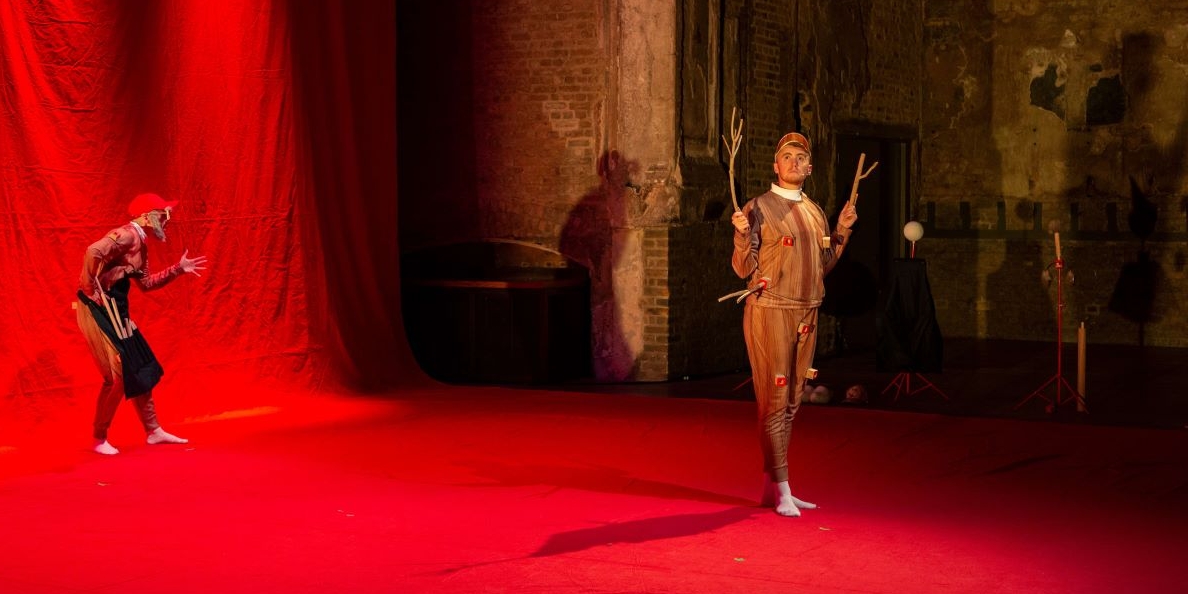Cade & MacAskill are Rosana Cade and Ivor MacAskill. They describe themselves as “renowned queer artists and facilitators based in Glasgow”. Since 2018, they have been working on ‘The Making of Pinocchio’, in collaboration with Tim Spooner and Yas Clarke. The work has been co-commissioned by arts institutions in Glasgow, Hamburg, and Gent, and its development has been funded by Creative Scotland and Arts Council England.
This ground breaking piece is unlike any other show I have seen. Cade and MacAskill have taken the story of Pinocchio – of the little wooden puppet that wants to become a ”real boy” – and used it as a metaphor for the decision of MacAskill to transition from female to male. Through this metaphor, they find a huge range of ways to explore the meaning and impact of that transition on their relationship with Cade, with the wider community, and on their sense of self in a sometimes hostile world. There are no rose-tinted spectacles here – even the strains on their loving lesbian relationship are subtly conveyed. For a straight critic it is sometimes an uncomfortable ride but there is such a plentiful supply of inventive sparks in the show that the final impression is of joyful possibilities.

The story moves from a version of the fairy tale to self revelatory autobiography, to a sort of live animation, to fantasy scenes of transgressive red leather sex games, to something like stand-up, and to other scenes – constantly leaving the audience to catch up with the imaginative journey taken by the performers. It is very difficult to come up with descriptive labels for what happens in the performance space – and that is one of the joys of this piece. One of the main features of the way the story is told is the use of live cameras projecting what the performers are doing and saying onto a large screen – but they have developed a way of positioning themselves away from the camera at different distances so that sometimes on screen it looks as if one of them is tiny and one is huge. It is a technique that they have honed to near perfection and one that hugely enhances the woodcarver/puppet part of the story. My only reservation is the soundscape behind the action. For my ears, it was not consistently right for the story being told – and a repetitive two chord string sound grated in the end.
Though much of the performance is fascinating and funny, there are underlying themes that demand careful and caring thought. Trans rights and the danger of transphobia are always in the background but they are hardly ever faced head-on – instead they are dealt with with more subtly, perhaps most effectively by the audience’s journey in getting to know the performers and their pains and pleasures. They are constantly making gentle fun of each other. There is a sequence near the end of the piece when they both become sort-of trees with lots of twigs and branches attached to themselves and gradually move towards a strange sort of union – it is at the same time absurd, touching and sexy.
This is a show that really has to be seen and experienced. It does not offer a space where trans rights and transphobia are debated, though the issues are constantly there in the background. But what makes the evening special is the brilliance of the staging and the warmth of the performers. They described it as a “work in progress” – I would love to see it again further down the line. I should add that the audience loved it – one of the most enthusiastic receptions I can remember at BAC.

